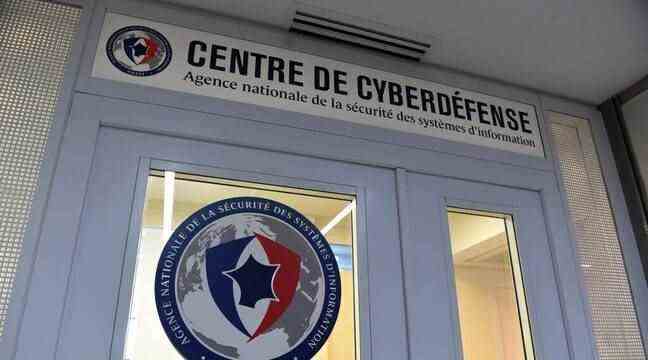Will France soon follow in the footsteps of the province of Quebec, which has had a Ministry of Cybersecurity and Digital since January 1? “For me, the first step would be to set up a Ministry of Digital Affairs, and not a Secretary of State as is currently the case, and, in this Ministry of Digital Affairs, one could imagine a Secretary of State for Cybersecurity with more engaging messages”, attacks outright Gérôme Billois, cybersecurity expert from Wavestone. For the time being, it is the National Information Systems Security Agency (Anssi) which manages these subjects in France, “in a completely apolitical approach to protecting the country”, adds the expert. A management which implies a duty of neutrality, underlines Anssi, which did not wish to answer our questions for this reason.
Today, while a hybrid and protean war is looming on the side of Eastern Europe, does France not have reasons to accelerate its involvement in cybersecurity with a political will? more assertive? Emmanuel Macron seems in any case to have only recently taken the measure of the scale of the site.
Recent announcements to strengthen cybersecurity in France
He first announced a year ago – after cyberattacks targeting two hospitals, that of Dax (Landes) and Villefranche-sur-Saône (Rhône) – a fight plan dedicated to cybersecurity endowed with one billion dollars. euros, in equal parts between the public and the private sector. In particular, it provides for the installation of a “Cyber Campus” in the La Défense district, initially planned for the fall of 2021 and which should finally be operational in the coming weeks. The goal: to progress in terms of research.
Then, on January 10, three months before the presidential election and while he has still not officially declared himself a candidate for his succession, Emmanuel Macron, traveling to Nice, promised the creation of an “Agence du internal security forces”, as well as the creation of 1,500 cyber patrol positions, emphasizing the need for “digital transformation”.
The issue of cybersecurity is still very timid in the presidential campaign: the candidates Hidalgo, Le Pen and Mélenchon barely address it in the light of defense issues. Only Nicolas Dupont-Aignan makes much of this, defending an operational cyber weapon both defensively and offensively and announcing a reinforcement of human resources. The promises are there, but what about on the ground?
Bluffing for funds?
The alleged cyberattack against the Ministry of Justice, claimed on January 27 by the group of hackers Lockbit 2.0, whose eponymous ransomware made Anssi and the cyberspace command of the gendarmerie tremble for a time, finally made a splash, or almost . The data siphoned off and partially revealed are in fact those of a Caen law firm. Sensitive files, of course, but which do not threaten the security of the State. The extortion operation is a failure, the countdown triggered by the malware finally stopped eight days earlier, the data having been leaked.
On the other hand, such a cyberattack and the communication around this case could strengthen the reputation of these hackers… and probably its rating on the dark web.. The group has in any case highlighted the weaknesses of many public services which are still struggling to secure the millions of data they possess. Ironically for the authorities, the day after the Lockbit 2.0 data blackmail, the Court of Auditors pinned down in a report the too slow digital transformation of the… Ministry of Justice. Funny, we tell you!
A central question of the presidential campaign?
“It is essential, these days, that the State be at the forefront in terms of cybersecurity and digital technology, declared Quebec Prime Minister François Legault in December. We need to improve our data systems to have more efficient, better managed, more agile organizations and to simplify the lives of Quebecers. A strong commitment that could be invited into the presidential campaign? For Gérôme Billois, “all the candidates agree on reinforced protection for France against cyber threats. Sustaining recent promises would be a way of establishing the country even more as a leader in cybersecurity, even if currently, on the European level, as well as on the international level, France does not have to be ashamed of what she undertakes”.
Political commitment okay, but on what economic model? “Following the model of the English, who have always associated cybersecurity and prosperity, France must also think about job creation and strong development”, assures Gérôme Billois. Indeed, the sector is promised a good growth, with highly sought-after professions and training in this sector which almost systematically promises a job, when students are not recruited before the end of their studies. From there to cyber subjects making a prodigious leap in the polls, there is only one campaign.

